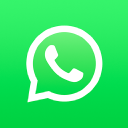How I'm Building A Side Hustle With An Unorthodox Business Mindset
Hello! Who are you and what business did you start?
My name is Chris Reimer, and I’m Founder and Chief Power Officer of Boosa Tech.
We sell power banks - portable phone chargers designed to keep your smartphone up and running no matter how long you’re away from a wall outlet. On a plane flying across the world? Trying to hail an Uber? At the never-ending 3-hour soccer practice playing mindless games on your phone? On the couch and your slovenly body just won’t move? Boosa's designed to eliminate the Low Battery Anxiety that just about everyone feels when their phone dips below 30%, 20%, 5% … as little as $25-35 will take this stress out of your life.
Boosa is currently a one-person operation - me! I run the website, social media, PR, inventory procurement from China (both negotiations and logistics), pick/pack/and ship orders, customer service, marketing … I do it all and love every minute of it. And all of this is happening while I continue to work my full-time job as a Director of Creative Services at a local university. Boosa’s website went live in late June 2018, and we’re averaging about $2,000/month in sales.
Currently we sell a lightweight


















